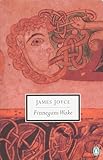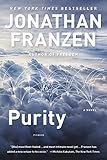 1.
1.
When I started running, I was stately, yes, but too plump, and I took to the roads in the morning to take in the crisp air and give myself a bit more margin of error to drink beer. About half a decade later — a year ago now — I found myself waving goodbye to my wife on a chilly, wet October morning as she drove out of the empty parking lot of Mount Vernon, once George Washington’s estate on the banks of the gray Potomac River, back to our warm home, 19 miles away, and our kitchen, and two cats, myself left with just a bag of water on my back, an MP3 recording of an Irishman reading seeming gibberish for 35 hours — i.e., James Joyce’s stream-of-consciousness dirge Finnegans Wake — and a GPS watch to track it all. And, of course, space-age sprays and pastes slathered on my peaks and valleys to prevent chafing.
I was training to run my first marathon — 37 and falling apart, bald and still too fat in most places, but human adaptability is a glorious thing, and somehow after training all of the hot summer it seemed the old meat machine would be able to finish the race. Knock on wood. Trust your training. Never trust a fart. Etc. I’d made it through the acute brutalities of a DC summer (85% humidity at 5:45 am, and hot) with just one long run left. After this last monster, the worst that remained would somehow be just a non-issue 12 miler, then taper taper taper (for non-runners: heal up) and ta da, the race, and then done. I would get my body back, and my weekends, and my mornings.
Forget the aches and the pains and the miles. The time commitment alone was real and grueling: Almost three hours of weekday mornings spent running before work, and then a long run on Sunday of another two and a half to three hours.
A month or so into the 18-week grind, though, I found that the gift of this training was the gift of reading. Hours and hours of long runs, just get those miles in, and after a while music is too complicated, the rhythms — too often the slightest bit off — make feet fall wrong. So: audiobooks. That summer I “read” better and more by listening than I had been able to in years. As a younger man I had swallowed whole catalogues of author after author. Since 2004 or so, though, I hardly read a book or two a year.
 I’ll spare you and myself the excuses — this problem (like so many other things) was my failing and not the world’s. But eight miles on a Wednesday morning, or a Sunday 15…that’s real time, for real “reading,” available nowhere else in my life. And God bless it. Over the course of the summer I “read” story after story from a Haruki Murakami collection Blind Willow, Sleeping Woman, and all of Rachel Kushner’s Flamethrowers, and a good lot of Jonathan Franzen’s Purity.
I’ll spare you and myself the excuses — this problem (like so many other things) was my failing and not the world’s. But eight miles on a Wednesday morning, or a Sunday 15…that’s real time, for real “reading,” available nowhere else in my life. And God bless it. Over the course of the summer I “read” story after story from a Haruki Murakami collection Blind Willow, Sleeping Woman, and all of Rachel Kushner’s Flamethrowers, and a good lot of Jonathan Franzen’s Purity.
 So back to that Mount Vernon parking lot morning. I had reached the emotional (if not literal) end of my training. One more long run and I‘d be done. All that would be left would be to stay loose and rest up for the marathon. But things had gone too well, and I wanted more. The running books I’d read said not to push past 20 miles in your training runs, certainly not for your first marathon. The reason: there’s no gain to be found in pushing into or through the awful last six miles, where your body and soul leave you with nothing but the one, two of foot in front of foot dragged by acid-soaked muscles and the thought that there is beer and something else at the end but I forget what. For the sake of your emotional well-being, just do that once. Save that unique joy for race day.
So back to that Mount Vernon parking lot morning. I had reached the emotional (if not literal) end of my training. One more long run and I‘d be done. All that would be left would be to stay loose and rest up for the marathon. But things had gone too well, and I wanted more. The running books I’d read said not to push past 20 miles in your training runs, certainly not for your first marathon. The reason: there’s no gain to be found in pushing into or through the awful last six miles, where your body and soul leave you with nothing but the one, two of foot in front of foot dragged by acid-soaked muscles and the thought that there is beer and something else at the end but I forget what. For the sake of your emotional well-being, just do that once. Save that unique joy for race day.
Like I said, I felt things had gone too well. So, for this last run, I wanted to up the mental game somehow, maybe simulate the brutality of the last six miles without running them. What better way to test my fortitude than by hammering my head with the legendarily impenetrable Irish jibberish of Finnegans Wake? If I can run 20 yammering nonsensical miles, then an extra six with folks cheering most of the way instead: easy, right? Maybe easier.
It seemed a good morning for my project, I thought, as my wife and I drove to Mount Vernon, cold and gray and wet. Irish weather, maybe, myself having never seen Dublin. And, frankly, good running weather too. Better a chill and a wind you can fight with the fire inside than the crushing of the sun and heat.
I stepped out of the car into the dreary Mount Vernon parking lot and put on the silly safety-vest-looking backpack full of water. My wife took the wheel and drove quietly out of the parking lot, a full and sane day ahead of her. I waved to the tail-lights as they dimmed in the mist and, trotting off towards home, I pressed play.
The running was fine and predictable, the first couple miles just working through the accumulated tightness of the preceding months and past each joint’s initial grumbles. The book pushed quickly through the first page or two that had punished me repeatedly for daring to start reading it a couple times over the years. As the minutes passed, a sort of awareness of scene filtered through the earbuds, if only barely. Early on, for example, a museum guide walked us (the readers) through what must have been pages of exhibits of I’m not quite sure why it mattered. For example:
“This is the flag of the Prooshi- 11
ous, the Cap and Soracer. This is the bullet that byng the flag of 12
the Prooshious. This is the ffrinch that fire on the Bull that bang 13
the flag of the Prooshious.?”
This is Derek’s sullen resignation.
But then we moved on through the miles, the book and I, past the museum, and…
Not as bad as I thought. Somehow, easier? Easier even than a narrative book? I’ll admit there were times over the hundreds of miles this summer when I was not laserbeam focused on the intricacies of Murakami’s blind willow dream, or, in Flamethrowers, the Moto Valero slipping turning tumbling across the salt flats, or men of various ages, nationalities, and levels of familial relation leering at Franzen’s Pip. Moments when I’d catch and hold an image then let it envelop me as my feet kept hitting ground, caught frozen smiling in the wave before it broke and rolled back, my attention and any context washed away with it. Or the realities of the run took over: when stop lights or carb packets or blessed cold water was king, the audiobooks slipped to Charlie Brown teacher sounds and rhythm in the background. But here was a book that was all a waterfall of images sound and rhythm and yes on some level so much more, but on a run it could be just sound and rhythm, and if you catch a bit in English here and there all the better. And if not, it just enveloped me as I swerved along that last long run by the river, beating the bending path back to my castle.
Other than the museum guide, the first surprise of Finnegan’s Wake to wash over me was the rap music. Multiple times in first five miles (at my pace, the first hour of the book) I found myself thinking back to “Alphabet Aerobics” by Blackalicious. And I could swear that Joyce namechecked at least a couple lyricists in the first 100 pages: Black Thought, and Meth. I was surprised somehow to not hear the names Raekwon or Ghostface Killah, even though the book’s random access style shares more DNA with the Chef and Ghost than with Method Man. But one does not get greedy when writing a paragraph about anachronistic name dropping. Run on.
 In college I read Ulysses with and for and because of the secondary texts and concordances and the desk and time big enough to hold it all. Peek under the page and see the scaffolding made of strings. Pull a string and pull into your lap The Odyssey or Shakespeare or the intricacies of then-contemporary Irish politics. Delight in the architecture and in your own appetite for a “difficult” book. Impress your friends and wow (bookish) lovers. On the run two decades later, however, my ears were just big enough to hold the dance of syllables, if that, but in that: liberation. I could not be expected to figure it out. And to be clear, I didn’t. No place for concordance here. No strings or scaffolding.
In college I read Ulysses with and for and because of the secondary texts and concordances and the desk and time big enough to hold it all. Peek under the page and see the scaffolding made of strings. Pull a string and pull into your lap The Odyssey or Shakespeare or the intricacies of then-contemporary Irish politics. Delight in the architecture and in your own appetite for a “difficult” book. Impress your friends and wow (bookish) lovers. On the run two decades later, however, my ears were just big enough to hold the dance of syllables, if that, but in that: liberation. I could not be expected to figure it out. And to be clear, I didn’t. No place for concordance here. No strings or scaffolding.
Here’s what happened (I think) in what my MP3s call the first 100 pages or so: the world was created, as were people, as was Dublin. People had a lot of sex. People did a lot of drinking, and got drunk. At least one person, and likely more, peed, seemingly (hopefully) outdoors. I’m pretty sure I may have secreted to the bushes myself in the course of those pages. Men stood trial for their offenses. Maybe the peeing was the offense, or one of them, or maybe not. I faced no censure myself for peeing into the bushes. Not even a judging glance.
And a few miles on, after the rap, there were other echoes, this time literary. First, of Joyce. There was a cyclops in Ulysses and a guy named Bloom, and both, or the sound of both, in the Wake. And did I hear Dedalus? Like Ulysses’s Bloom, another Joyce avatar. But then echoes of other books, as I passed other stretches I’d run before training for this race. Here, on this stretch of path near the parkway, was where Pip rode the bus out to see her mother, and here next to the airport I remember the dinner where it became clear that Valero’s mother in Flamethrowers was truly awful. And later on, foot after foot, echoes too outside of the other books even, because here on this bridge earlier in the summer it was too hot and my water ran out in 87 degrees and I started to get deep chills in the beating summer sun, which I’m not a doctor but I took to be a bad sign. Hard not to flash on that.
Exactly halfway through, a pub. “Stop,” the sirens wail.
Many miles on, deeper echoes too of my life before all that. I grew up here and once back up over the bridge into the city I’m seeing that little stage near the Washington Monument where I swear I conducted a marriage of two women in front of thousands of people before a Fugazi concert in 1995. So many Fourth of July chaos evenings chasing explosions of fireworks friends and beer. The parades and inaugurations I cheered or screamed at (W. Bush and Obama, both — just align my reactions with yours, and read on). All of this, and every heaving sweating awful summer run coming back with every step across DC soil. So deep in, but almost home. Riding the rhythm of the Wake but long past the words.
And then, the gutpunch realization that I owed the gods 20 miles but home was just over 19 from where I started. With three miles left the legs were tightening, and the red light stops more frequent, and with the tank so low how to push on when home was just a left turn away? But one of the few things I think I remember from Ulysses and The Odyssey is that one is not home until it is earned, that physical proximity was not enough and it was the extra that makes it real. So once at my house, 19.4 miles from Mount Vernon, and .2 from a ferociously needed shower, I kept on straight and not left, looping the park by my house in a stumble, and pushing a bit more, to get somehow to 20 miles, legs barely there, stopping immediately once the last decimal turned, and
wow.
done. and stop this Irish mumbling, phone. I want my brain back. Just a block or two to the door. My wife had mentioned breakfast of bacon and fruit, even though it was past noon. And there was leftover pizza as well. And there, my door, my house. Home.
I stumbled to the door, legs aching but still my heart was going like mad. My wife opened the door, and I saw the bacon and pineapple and pizza warming in the oven, and she asked me would I go clean up while she poured me a beer and yes I said yes I will Yes.
2.
And that was last year. I ran the race, the 2015 Marine Corps Marathon, and finished, although I was not fast. My wife made signs and popped up five places along the way and passed me a dry pair of socks halfway through. They were magic, those socks, and now I know to pack a pair or two for this year. As I finish writing this, I’m wrapping up training for the 2016 Marine Corps Marathon. One 20-mile training run down, and the second this weekend. I ran the first with a friend. I may run the second with Joyce again for old times’ sake. My wife and I have (lovingly and amicably) separated, and my training runs now also echo the many morning miles we had shared over the last few years. And I cannot wait for it all to be over, the training, and then for it all, next year, to begin again just right where it left off.
Image Credit: Pexels/Visually Us.









